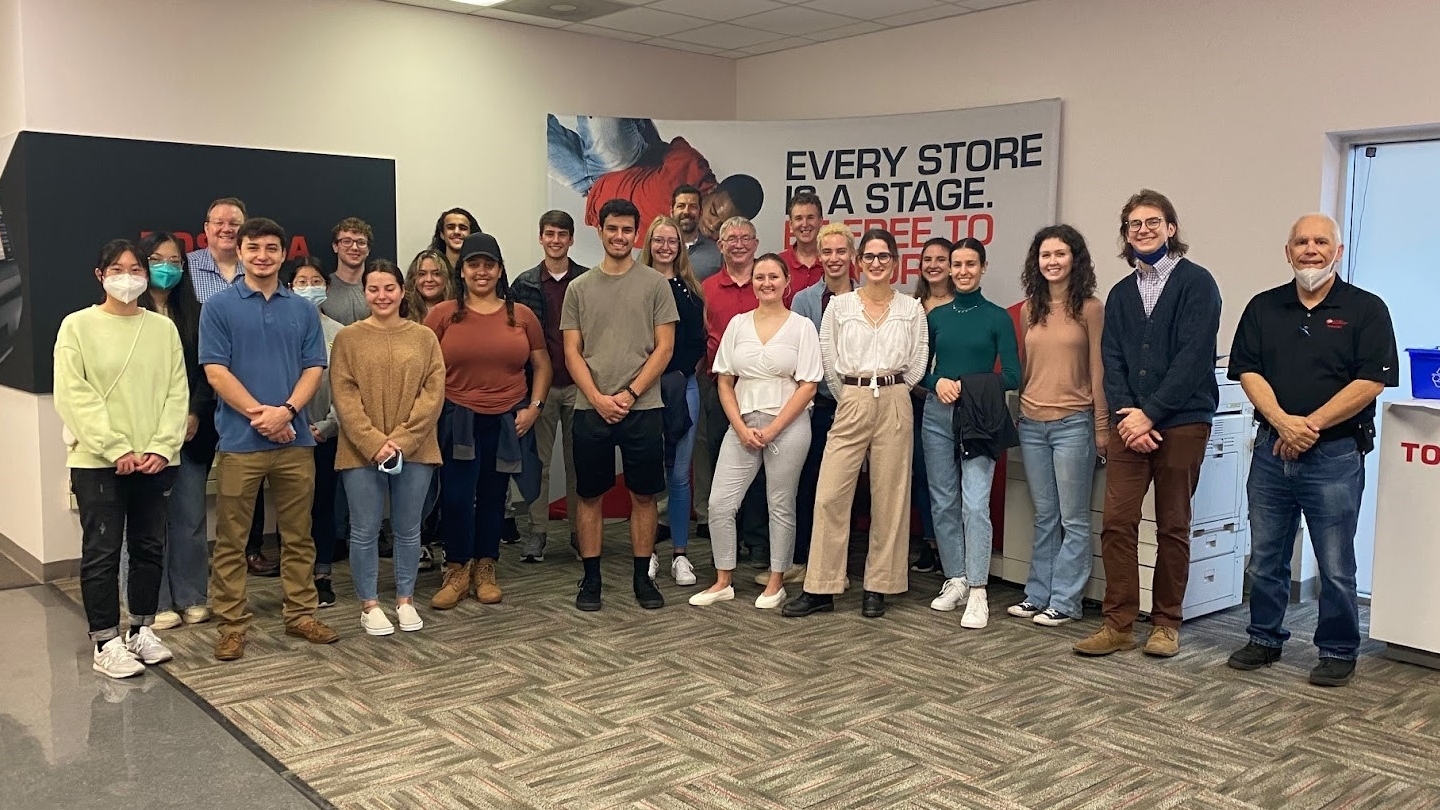Tim Kraft joins Poole Supply Chain Faculty and SCRC Team

By Anna Rzewnicki
Tim Kraft begins this fall as an assistant professor of operations and supply chain management in the NC State University Poole College’s Department of Business Management. He also is one of the faculty researchers affiliated with the Supply Chain Resource Cooperative (SCRC), based in Poole College.
“My father was actually very influential in helping me find industrial engineering,” Kraft said in an email interview with Poole College communications. “While not an engineer himself, he worked with a number of engineers at the Florida Department of Transportation and connected me with some of them, so that I could hear more about what they do. Deciding to study industrial engineering was one of the most important moments I’ve had on this long and winding career path,” he said.
That background and an innate curiosity has led Kraft through his academic degrees – a bachelor’s in industrial engineering from Georgia Tech, a dual MBA and master’s in engineering from the University of Texas at Austin, and his doctorate in management science and engineering from Stanford University.
It also has informed his approach to work, first in industry and now in research and teaching.
Kraft said he chose the dual MBA and engineering degree, “to give me the flexibility to either return to industry or pursue academia. I really enjoyed working on my master’s report in the engineering department and TA’ing and working with students there. The light really went off when I took an intro to ops course in the business school. Observing my operations professor helped me realize that teaching ops at a business school was a position I wanted and could do,” he said.
“I love my job. As a professor, I’m very lucky in that I get to live two very different lives. Teaching is always fun and engaging – I love being able to interact with students and feed off their energy in the classroom. It’s an environment that I’m very comfortable in and gain a lot of satisfaction from,” he said.
“The other half of my job is research, where I get to bang my head against the wall trying to solve problems that sometimes take years to figure out. Results and feedback are often few and far between when it comes to research. When they occur, it’s extremely gratifying knowing you’ve not only solved a difficult problem, but also often pushed yourself beyond your own limits,” he said.
“It’s great to have these two aspects – both of which I’m passionate about – to jump back and forth between,” he added.
Kraft also draws on his prior engineering roles in industry, with PwC, RadioShack and other companies.
“I was lucky with my work experience, in that I was able to work on a wide variety topics in a number of different contexts. Although the time spent working made me relatively ‘old’ for starting my Ph.D., I wouldn’t trade it for the world. It gave me the perspective and focus I needed to pursue my doctoral studies and identify research topics,” he said.
His work at RadioShack, back in 2005, also fueled an ongoing interest in sustainability.
“I was working on a project in our cell phone repair and refurbishment division,” he said. “It was really eye-opening to see the amount of waste being generated by the process. Seeing the piles of e-waste being discarded stuck with me. I then went to Stanford for my PhD, where sustainability was an emerging topic campus wide at that time. One thing naturally led to another,” he said.
Most recently, Kraft has focused on transparency and sustainability in supply chains – examining both consumers’ reactions to different sustainability messaging and ways for companies to gain better visibility into their suppliers’ practices.
Kraft is teaching a graduate operations strategy course and supervising supply chain and operations student project teams at Poole College this spring.
What can students expect? “I like an interactive classroom,” he said. “Strategy courses often take a pretty broad view. While of course we’ll have these types of discussions, I also like to get into the details and discuss numbers and more tangible things. I don’t have a lot of patience for fluff.”
Being part of the Supply Chain Resource Collaborative and getting involved with companies was also “a major” part of his decision to join the Poole College faculty, he said. “Applied, data-driven research is the direction my field is going. Theory is good but not if you never test and challenge it.”
Through the SCRC, students work with SCRC partner companies on real world projects. Those team projects may end up in the SCRC’s annual student showcase and the college’s annual Leadership and Innovation Showcase next spring, where supply chain and other practicum projects are presented to a panel of judges and the general public, and compete for cash awards.
“To support future growth, the SCRC is bringing on additional supply chain expertise, including Tim. His research focuses on the impact of environmental and social responsibility issues on supply chain and operations management decisions, and he will be one of the key elements in helping us to engage in leading research with companies moving forward,” said Robert Handfield, SCRC executive director and Bank of America University Distinguished Professor of Operations and Supply Chain Management.
- Categories:


